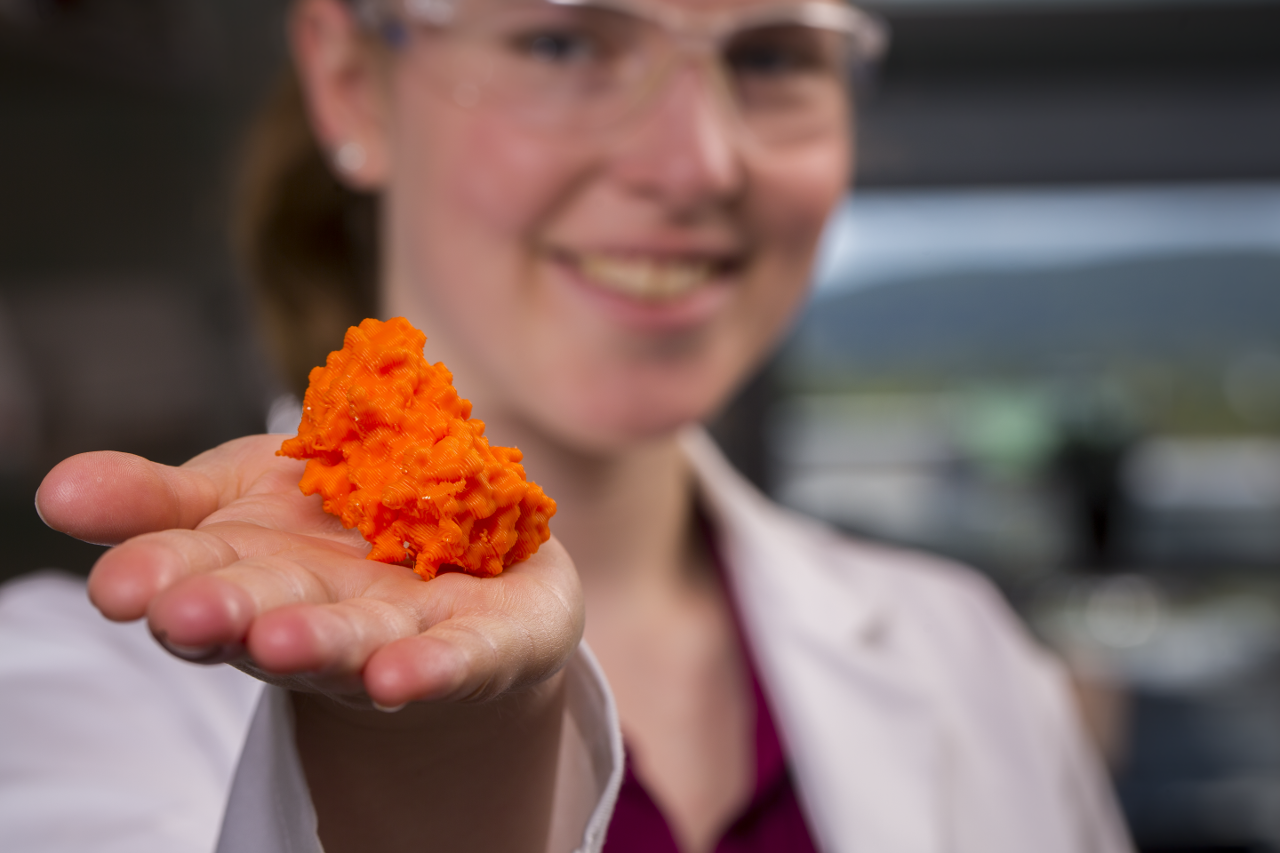 Cellular engineering is at the core of biotechnology, and requires both a detailed understanding of cell function and state-of-the-art tools and strategies to control and direct this function.
Cellular engineering is at the core of biotechnology, and requires both a detailed understanding of cell function and state-of-the-art tools and strategies to control and direct this function.
The collaborations and collaborative themes amongst our faculty are in five key topic areas: protein engineering, metabolic engineering & systems biology, biomolecule delivery, regenerative medicine, and genetic engineering. These areas represent the collective strength of BTP faculty and serve as the foundation for BTP curricula.
The research nuggets listed below are not all-inclusive, but provide prime examples of the biotechnology-related research interests of our faculty, while highlighting collaborative efforts and the impact on health-related biotechnology and the treatment of disease.
| Targeted Cellular Delivery of Engineered Proteins Biologics (protein-based drugs) are the most successful and fastest growing sector of the pharmaceutical pipeline. This success hinges on the fact that protein engineers understand how to robustly build and evolve proteins with new functions. The major limitations to biologics are that they are not orally bio-available so they typically must be injected and often require extremely high doses because only a small fraction of the protein arrives at the target tissue. Hardy, Garman, Gierasch and Thayumanavan are working collaboratively to develop novel systems to target delivery of therapeutic proteins. This approach allows a lower dose of the drug, co-delivery of small molecules and proteins, and targets to the interior of appropriate cells. |
| Engineering Natural Product Synthesis in Cultured Plant Cells Some of the most important pharmaceuticals, in particular anti-cancer agents, are plant-derived natural products that accumulate in very low yields in their native species, and therefore substantial quantities cannot be achieved through harvestation of plant material. Additionally, because the biosynthetic pathways are both complex and not fully characterized, it is currently infeasible to engineer simpler microbial systems as production hosts for many of these compounds. We are developing and optimizing plant culture systems as production platforms for large-scale supply, with a focus on synthesis of the anti-cancer agent Taxol™ in Taxus cultured cells. |
| Subcellular Trafficking and Targeting A next-generation challenge in biotechnology is understanding and controlling how cells organize their interiors. At no time in a cell’s life cycle is the intracellular organization more dynamic, exciting, and crucial than during cell division. Missteps in cell division lead to cancer and apoptosis. The process of mitosis is tightly regulated by microtubules, motor proteins, and microtubule-associated proteins that make up the mitotic spindle. Several BTP training faculty are focused on exploring, utilizing and engineering motor proteins and microtubule-associated proteins to understand and alter mitosis. |
| Materials to Understand and Control Cell Movement in Development and Disease This team of researchers uses engineered materials and model systems to study how the tissue microenvironment impacts cell movement in development, reproduction, and diseases. We are particularly interested in mechanotransduction, which attempts to understand the ability of cells to translate a physical signal from the microenvironment (matrix stiffness) into a biochemical one to drive cell phenotype. One major obstacle to the study of mechanotransduction is the availability of tunable materials systems that are robust, reproducible and simple to use by both the engineering and biological communities. |
